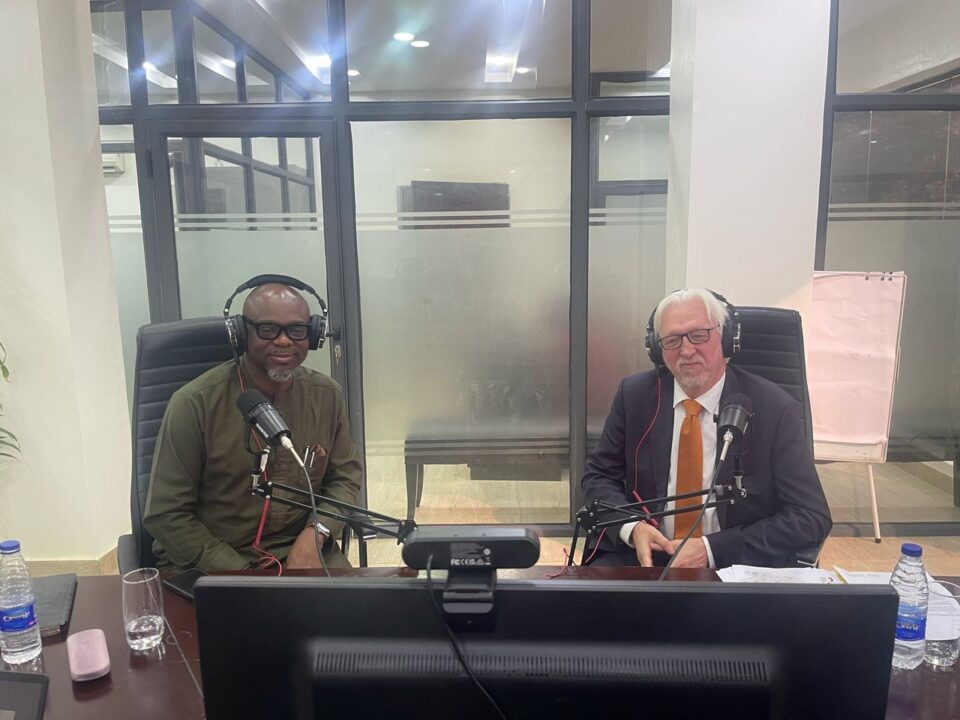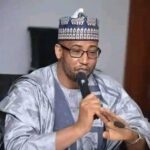The government of Germany and public policy think-tank – Nextier – have explored Germany’s evolving development cooperation with Nigeria and West Africa, focusing on economic growth, security, climate resilience, and investment opportunities.
This cooperation was the focus of the latest episode of Nextier’s ‘Crossing Perspectives’ Podcast which featured an insightful conversation between Dr. Ndu Nwokolo, Managing Partner at Nextier, and Ambassador Johannes Lehne, Deputy Head of Mission at the German Embassy in Nigeria.
Ambassador Lehne emphasised Germany’s long-standing partnership with Nigeria, highlighting the country’s ongoing economic improvements, noting that “the German government sees that the reforms President Tinubu has implemented over the last two years are taking hold. Inflation is decreasing, foreign exchange reserves are stabilising, and oil production is picking up”.
He stated that German companies have increased their interest in Nigeria, indicating growing confidence in the business environment even as Germany’s approach to development aid in Nigeria is evolving, with a greater focus on investment and business promotion rather than crisis response.
Ambassador Lehnestated said “we will adapt accordingly. We will put more investment into the country. We will shift from crisis management to promoting businesses”, while reaffirming Germany’s commitment to supporting Nigeria’s defence sector in terms of security cooperation.
“Germany has already established a military support program with the Nigerian Armed Forces, and we will likely increase this in the future”, he said; just as he highlighted Germany’s role in strengthening ECOWAS’ counterterrorism standby force by providing mobile headquarters, hospitals, and logistics infrastructure.
Addressing concerns about potential budget cuts in climate resilience, food security, and gender-related initiatives, Ambassador Lehne reassured listeners: “I don’t see any cuts happening. In fact, the Green Party in Germany secured €100 billion for climate, resilience, and gender programs. As the United States reduces its aid footprint, Germany will step in to fill the gap.
“Germany will maintain its active development cooperation through GIZ in energy, climate resilience, agriculture, and job creation, including expanding the African Power Program for regional electricity integration.”
Ambassador Lehne acknowledged the desperation that drives young Nigerians to migrate illegally but warned against the dangers of human trafficking networks. “Don’t do it. It’s highly dangerous. Criminals exploit migrants, and the journey is filled with risks,” he cautioned.
Instead, he emphasised Germany’s efforts to establish legal migration pathways, saying that “we are working on a legal migration agreement with Nigeria to provide structured opportunities for skilled workers.”
Ambassador Lehne further highlighted Germany’s role in supporting Nigeria’s energy transition and infrastructure development, pointing to initiatives such as the West African Power Program, which aims to integrate electricity networks across the region.
On investment in Nigeria’s critical minerals sector, Ambassador Lehne revealed that German companies are actively exploring opportunities. “They have conducted satellite mapping of Nigeria’s resources and are engaging with state governments to secure investment opportunities,” he said. However, he cautioned that security and energy infrastructure must improve to attract sustained foreign investment.
The conversation also touched on the challenges facing ECOWAS, particularly the recent withdrawal of Burkina Faso, Mali, and Niger. Ambassador Lehne stressed the importance of regional unity, comparing the situation to Brexit.
“ECOWAS must decide whether to tolerate military dictatorships or uphold democratic values. Countries cannot cherry-pick benefits without sharing responsibilities,” he said. With the upcoming German government transition, Ambassador Lena expects heightened defence investments due to global security concerns. Germany recently strengthened military cooperation with Nigeria through a $2 million defencesupport program for 2025-2026 and continues supporting ECOWAS counterterrorism efforts.



